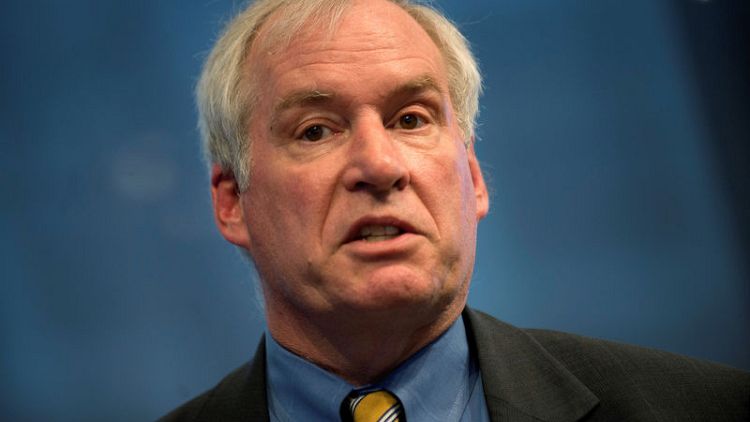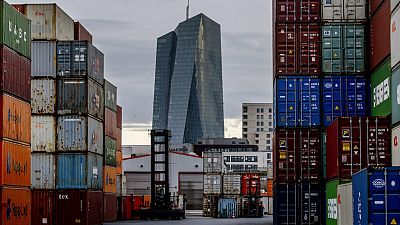(Reuters) - U.S. economic conditions are "relatively benign," Boston Federal Reserve Bank President Eric Rosengren said on Tuesday, but said he is closely watching incoming data to gauge how elevated risks from trade tensions and a global slowdown play out.
"Should those risks become a reality, the appropriate monetary policy would be to ease aggressively," Rosengren said in remarks prepared for delivery to the Leo J. Meehan School of Business at Stonehill College in Easton, Massachusetts. "Clearly, there is a downside risk that trade or geopolitical problems could escalate, resulting in a much weaker situation than is currently anticipated in economic forecasts."
So far, though, that is not the case, he said. As long as the U.S. consumer keeps spending and global conditions do not further deteriorate, the U.S. economy will likely continue to grow around 2%, and tight labour markets will gradually push inflation back, Rosengren said.
"This is a particularly good time to carefully watch incoming data to determine whether any additional policy adjustments are necessary to achieve" the Fed's goals of full employment and 2% inflation, Rosengren said.
Rosengren was one of two Fed policy makers who cast dissenting votes in July when the U.S. central bank decided to cut borrowing costs for the first time since 2008, saying he saw no clear and compelling reason to do so.
Since then U.S. President Donald Trump has escalated trade tensions, with new tariffs on Chinese imports going into effect over the weekend and more planned for later this year unless the world's second-biggest economy agrees to a new trade deal with the United States.
Fresh signs of the trade war's chilling effect on U.S. manufacturing emerged earlier Tuesday, with new data showing U.S. factory activity decreased last month for the first time in three years, and new orders plummeted.
But while Rosengren nodded to "elevated" risks from the U.S.-China trade war, he stuck to his view that most economic forecasts and most financial market indicators point to continued growth rather than an imminent downturn. Even the inverted yield curve, he said, is more of a sign of troubled economies abroad pushing investors to buy safe-haven U.S. Treasuries than a marker of a coming recession.
Rosengren's remarks Tuesday were his last scheduled public comments before the Fed holds it next policy meeting on Sept. 17-18.
(Reporting by Ann Saphir; Editing by Leslie Adler)



